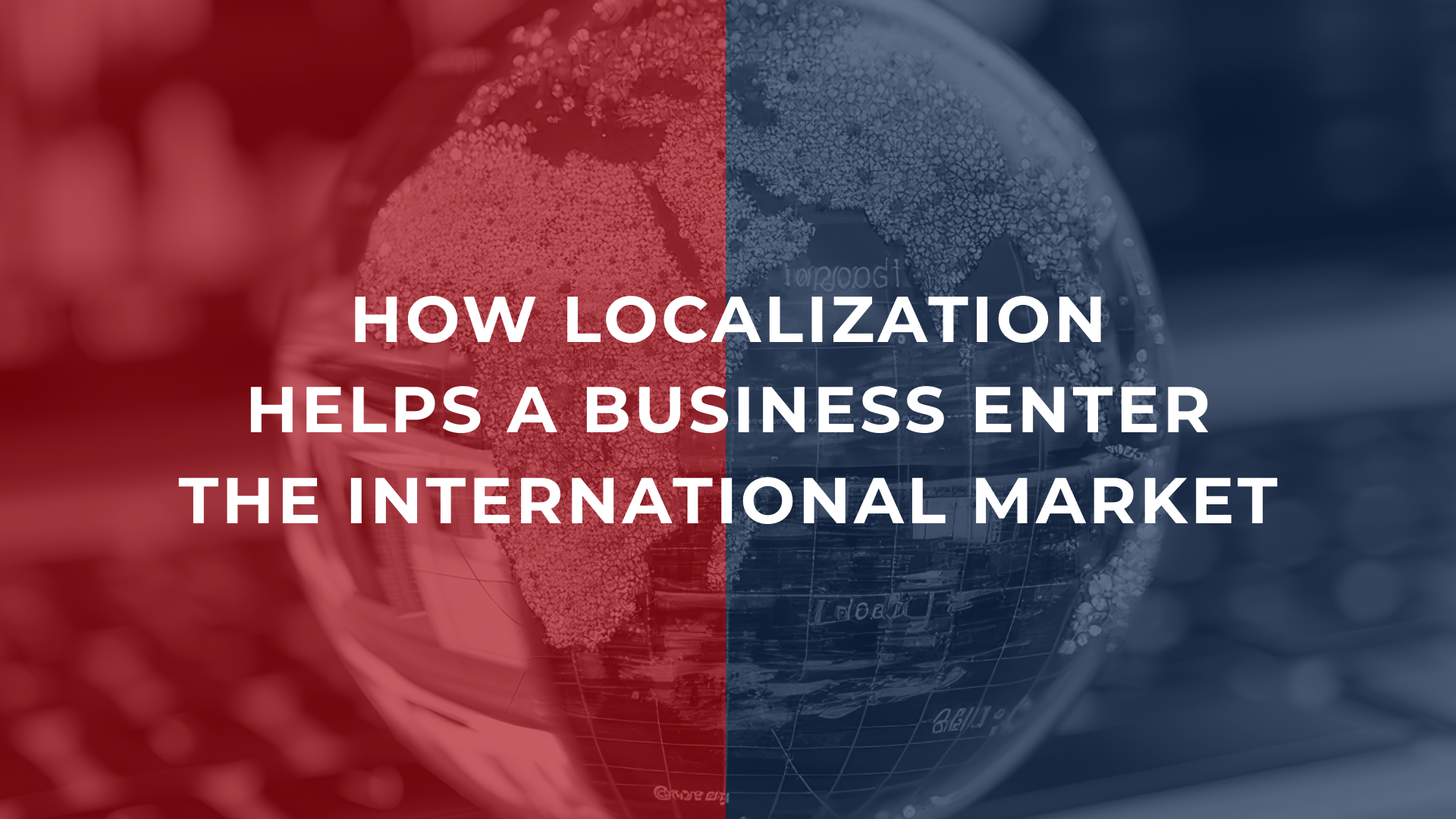
In today's globalized world, entering the international market has become one of the primary goals for many companies. One of the key tools for achieving this is content localization. It helps adapt websites and products to the cultural and linguistic nuances of each region. Proper localization of a website involves not only translating the text but also adjusting visual elements and functionality.
It is important to order the translation from a reliable translation agency, where professional specialists work. This ensures that the website translation will be accurate and meet the expectations of the target audience. By choosing professional localization, you increase your chances of successfully entering international markets.
Advantages of Localization
Content localization is a powerful tool for businesses aiming to expand their operations into international markets. One of the key benefits is the ability to adapt a website to the needs of different regions, ensuring user comfort and increasing their trust in the brand. A quality website translation takes into account cultural characteristics, market specifics, and ensures accurate information perception.
Involving specialists from a translation agency guarantees a professional approach and high quality, enhancing the company’s competitiveness. Only well-executed website localization allows businesses to effectively communicate with audiences from different countries. It’s important to order a translation from trusted professionals to obtain content tailored to each language.
Cultural Adaptation of Products
Content localization involves not just an accurate translation of text but also consideration of the cultural characteristics and traditions of the target audience. It’s important to understand that different countries have their own linguistic nuances and preferences. For effective market entry, businesses need to adapt their products to meet local expectations. For example, website localization includes adapting not only the text but also the graphical elements, communication style, and even color choices.
Choosing a translation agency for this process is crucial because a professional approach to localization helps avoid cultural misunderstandings and increases customer loyalty. This is why it’s worth ordering a translation from experts who thoroughly understand the language intricacies and specifics of the country. Thus, properly executed content localization ensures a successful business entry into international markets and creates a positive impression among new customers.
Localization of Content and Technical Products
Content and technical product localization plays a key role in the successful entry into international markets. It’s not just about translating text but about a comprehensive process of adapting all product components to the cultural, linguistic, and technical peculiarities of the target market. Proper localization takes into account not only language but also formatting requirements, technical standards, and regulations, which can differ from country to country.
For technical products, it’s particularly important that instructions, software, or technical descriptions are clear and accurate. In this case, it’s crucial to order quality translation from professionals. This applies not only to textual information but also to graphics, user interfaces, and supporting materials, ensuring ease of product use.
Website localization also has its specifics. It’s essential to not only adapt the content but also ensure its technical compatibility with the requirements of search engines in different countries. A professional translation agency will help account for all the nuances so that the site remains convenient and intuitively understandable for new users. Ordering full content localization is important even at the stage of planning international expansion to avoid misunderstandings and additional costs in the future.
Therefore, if you want to order a website translation, it’s important to choose those who have experience in localizing both content and technical products, ensuring successful entry into new markets.
Legal Aspects of Localization
The legal aspects of localization are an integral part of the business expansion process into international markets. It’s important to understand that each country has its own laws and regulations governing language use, consumer rights protection, copyright compliance, and data privacy requirements. Therefore, when adapting content for foreign markets, legal requirements for translation and language use must be considered.
First of all, translating contracts, license agreements, instructions, and other legal documents must be precise and comply with the laws of the country where the product or service will be used. This is especially important for technical products, where discrepancies or errors in translation can lead to serious legal consequences.
Moreover, some countries have strict requirements for content localization and website localization, especially concerning the protection of personal data and user privacy. For example, European Union countries require compliance with GDPR standards, while some countries mandate that products and services be presented in the national language.
To avoid risks, it’s worth ordering a translation from qualified specialists experienced in working with legal documents and knowledgeable about the legal requirements in different countries. A translation agency that provides localization services should collaborate with lawyers or have specialists who can ensure the translated texts comply with local legislation.
If you plan to enter a new market, it’s important to order not only a website translation but also the legal localization of all necessary documents to avoid potential fines or other issues with regulatory authorities.
Conclusion
Localization is a key element for successfully entering international markets. It helps companies adapt their products and services to the cultural, linguistic, and legal characteristics of new countries, ensuring effective communication with potential clients. Choosing the right localization strategy enables businesses to enhance their competitiveness and reputation.
To achieve maximum results, it’s essential to order a translation from a reliable partner, such as a translation agency that specializes in website and content localization. A professional approach to localization guarantees accuracy and compliance with local requirements, as well as fosters user trust.
It’s important to remember that translation and localization are not just about changing the language but about adapting the content to new markets. This helps businesses stand out among competitors and offer their clients a high-quality product or service. By investing in website translation and localization, you are investing in the long-term success of your company in the global market.
